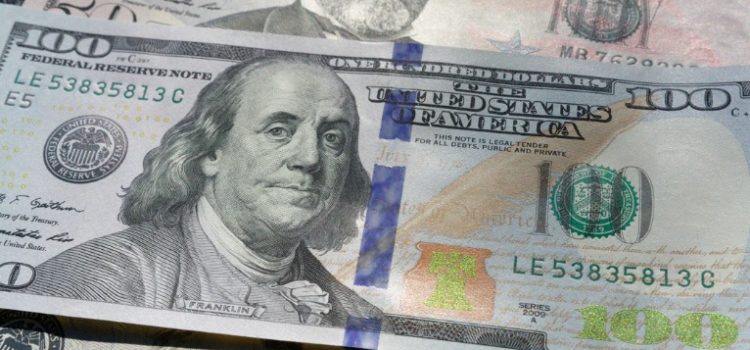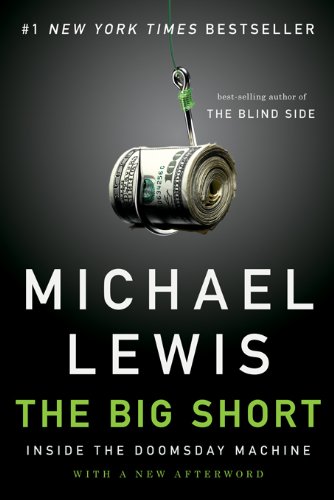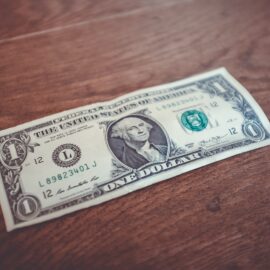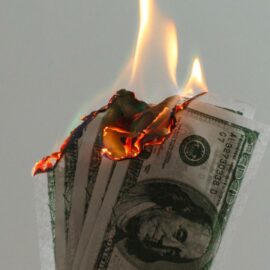

This article is an excerpt from the Shortform summary of "The Big Short" by Michael Lewis. Shortform has the world's best summaries of books you should be reading.
Like this article? Sign up for a free trial here .
Who is Ben Hockett? How was he involved in the “big short” that profited from the 2008 financial crisis?
Ben Hockett is a former Deutsche Bank trader who left Wall Street behind to trade derivatives from his home in Berkeley Hills. In 2006 he worked with investment company Cornwall Capital to short the housing market and profit from the 2007-2008 subprime mortgage crisis.
In the movie The Big Short, Brad Pitt’s character Ben Rickert is based on Ben Hockett. We’ll cover Ben Hockett’s background, his major role in getting Cornwall Capital the recognition it needed to be a player on Wall Street, and how he helped the company short the housing market.
The Story of the Real Ben Hockett
By early 2006, Cornwall had $30 million in the bank. But founders Ledley and Mai were still small potatoes by Wall Street standards. They might have been high-net-worth individuals, but they weren’t institutional investors—they weren’t managing other people’s money, just their own. On Wall Street, they were still second-class citizens. This wasn’t just about recognition or social prestige. Their lowly status denied them the right to trade in the highly complex options—like credit default swaps—being sold through the quantitative trading desks at the big investment banks. There was major money to be made, but Cornwall was locked out of the opportunity. But when they hired Ben Hockett, doors began to open.
Ben Hockett, a former Deutsche Bank trader, had left Wall Street behind to trade derivatives from the comfort of his home in Berkeley Hills. He wanted to be closer to his family and away from the wild culture of the financial world. He had an apocalyptic streak and was hyper-attuned to the possibility of extreme events. After learning that his house was wildly overpriced and lay on a geological fault line, he immediately sold it and moved into a rental—fearing that he would be hit with the unlikely combination of a housing bubble bursting and an earthquake. This was how Ben Hockett thought about the world. His home is apparently inaccessible to cars.
But for all his eccentricity as both a trader and an individual, Ben Hockett was a respected figure at the major banks. And he knew the right people to get Cornwall’s foot in the door. With a few well-placed phone calls and some meetings, Hockett got Cornwall its ISDA (International Swaps and Derivatives Association) Master Agreement, giving them the right to buy credit default swaps from the likes of Greg Lippmann. They now had a seat at the adult’s table.
Ben Hockett Helps Cornwall Short–With a Twist
When Ledley, Mai, and Ben Hockett heard Lippmann’s pitch to short the market, they recognized credit default swaps as just another type of option, the kind they’d been trading in for years. The market had fantastically underpriced the probability of an extreme event—in this case, the subprime world going up in flames. By October 2006, the doomsday scenario already seemed to be happening. Home prices were falling and borrowers were defaulting. The bonds were already turning sour.
Taking Advantage of Iffy CDO Ratings
But Ben Hockett and the team at Cornwall took a slightly different shorting position than did Eisman, Burry, Lippmann, and others. Instead of betting against the lowest tranches of the CDOs, they purchased credit default swaps that enabled them to bet against the highest tranches. Why would they do this? Because they saw that the triple-A bonds were just as vulnerable to collapse as the triple-B bonds, but the swaps against them weren’t priced that way.
The CDOs rated triple-B and those rated triple-A were composed almost entirely of the same types of subprime mortgage bonds, which were in turn made up of the same types of worthless mortgages to low-income Americans. There was no reason to treat them any differently, but the corruption and incompetence of the ratings agencies caused insurance (credit default swaps) on them to be priced as though they were completely different things.
Obviously, these bad loans were all subject to the same economic forces. If one subprime mortgage went bad, they were all likely to go bad. Ben Hockett and Cornwall couldn’t believe the opportunity they were confronted with. On October 16, 2006, they bought $7.5 million worth of credit default swaps from Lippmann’s trading desk, betting against the double-A tranche (one rating below triple-A) of a CDO. Four days later, they bought another $50 million worth from Bear Stearns. Cornwall only needed to spend a fraction of the face value of the referenced CDOs. A small investment in credit default swaps translated to a potential enormous gain once the CDOs collapsed. By February 2007, Ben Hockett and Cornwall owned $205 million worth of credit default swaps against double-A CDO tranches. They had put their chips down.
Ben Hockett and Cornwall Win Big
When Morgan Stanley finally admitted defeat and exited the trade, they had lost a net $9 billion, the single largest trading loss in Wall Street history. By the end of 2007, the bank lost over $37 billion through the subprime mortgage bond and related derivatives market.
For the Ben Hockett and the Cornwall team, now was the time to act. Their credit default swaps on the collapsing CDOs were worth more than they had ever been. But if they waited too long, they might lose everything. Either the government would step in and guarantee the bad subprime loans, or the banks they’d bet against (like Bear Stearns) would go bankrupt and be unable to pay them. It was time to sell.
On August 6, 2007, at a pub in the south of England (where he was on vacation with his family), Ben Hockett logged onto his laptop and looked for buyers on $205 million in swaps on double-A tranches of subprime mortgage CDOs. UBS, Merrill Lynch, and soon-to-be-bankrupt Lehman Brothers fiercely competed with one another to buy what Hockett had to sell. In the end, Cornwall’s swaps costing about $1 million sold for $80 million by the close of business that day. Their long shot had paid off 80:1.
———End of Preview———

Like what you just read? Read the rest of the world's best summary of "The Big Short" at Shortform . Learn the book's critical concepts in 20 minutes or less .
Here's what you'll find in our full The Big Short summary :
- How the world's biggest banks contributed to the 2008 financial crisis, greedily and stupidly
- How a group of contrarian traders foresaw the bubble popping, and made millions from their bets
- What we learned from the 2008 crisis - if anything






